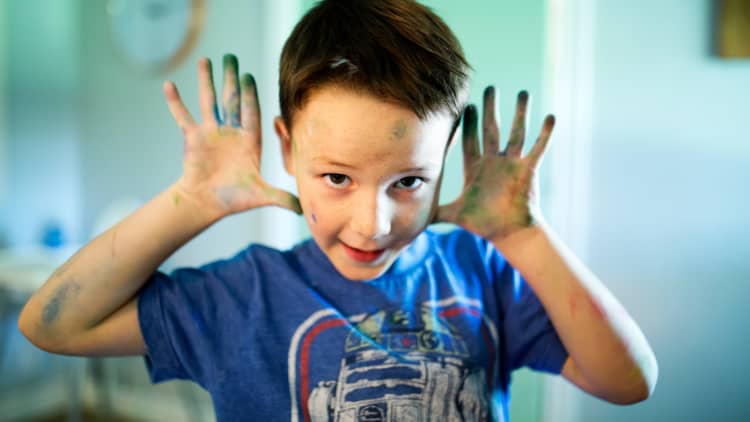Parents, teachers and coaches devote countless hours into helping kids build skills that they think will help them have a brighter future. But, reading aptitude and soccer skills don't guarantee a happy adult life.
In fact, a 2015 study published in the American Journal of Public Health found that social and emotional skills are the biggest predictors of future success. Researchers discovered that the more emotionally, mentally and socially competent kids were in kindergarten, the more likely they were to go to college and be employed full-time at age 25. Kids with the lowest social and emotional competency scores were at the highest risk for dropping out of school, legal problems and substance abuse issues.
But just because a child goes to college doesn't mean they've got all the emotional skills they need to succeed. In fact, a 2015 nationwide survey of 1,502 college students found that 60 percent of first-year students felt emotionally unprepared for college and were more likely to report poor academic performance and a negative college experience.
Fortunately, social and emotional skills can be taught (I include more than 100 exercises that teach these skills in my book "13 Things Mentally Strong Parents Don't Do"). A few simple strategies incorporated into your daily interactions with your child can make a big difference.
Here are five things smart parents do to raise successful, mentally strong kids:
1. They validate their feelings
Kids' responses often seem out of proportion to the circumstances. But saying, "Calm down! It's not a big deal," or "Don't be scared. Everything will be OK," does them a disservice.
Their feelings — no matter how dramatic they seem — are real. Smart parents teach kids that their feelings are OK and it's what they do with those feelings that matters. They say things like, "It's OK to feel angry but it's not OK to hit your brother."

2. They coach them on how to manage their emotions
Successful parents don't take responsibility for their children's emotions. Rather than calm them down when they're upset or cheer them up when they're sad, they give their kids the tools they need to regulate their own emotions.
...social and emotional skills are the biggest predictors of future success.Amy Morinauthor of "13 Things Mentally Strong People Don't Do"
They proactively help them identify the coping skills that work for them. While coloring might be a good way for one child to cope with feeling sad another child may feel better by listening to music.
3. They let them make mistakes
Even though it's tough to watch a child mess up, smart parents turn mistakes into learning opportunities. Mistakes—and the natural consequences that come from them — can be life's greatest teacher.
Whether a child forgets to pack his water bottle, or he waits until the last minute to do his science fair project, smart parents don't bail their kids out. Instead, they help their kids learn how to do better in the future.
4. They problem-solve together
Whether their kids forget to do their chores or they're struggling with their grades, smart parents involve kids in problem-solving. They ask questions like, "What would help you be more responsible?" and they develop a plan together.
That doesn't mean they don't give them consequences — they certainly do. But their discipline is focused on teaching them to do better next time, rather than shaming them for falling short of their goals.
5. They allow their kids to feel uncomfortable
Smart parents give their kids chances to practice their skills by allowing them to feel uncomfortable. That doesn't mean they expose them to harsh circumstances just to toughen them up, but it does mean they let them feel bored, disappointed, and frustrated sometimes.
And rather than help them "not feel scared," they encourage their kids to "be brave." Their kids gain confidence in their ability to tolerate being uncomfortable and they learn that they can do things they don't feel like doing.
Amy Morin is a licensed clinical social worker, a psychology instructor at Northeastern University and a psychotherapist. She is the author of the national bestseller "13 Things Mentally Strong People Don't Do" and "13 Things Mentally Strong Women Don't Do." She was named the "self-help guru of the moment" by The Guardian. Follow her on Twitter @AmyMorinLCSW .
Like this story? Subscribe to CNBC Make It on YouTube!
Don't miss:



